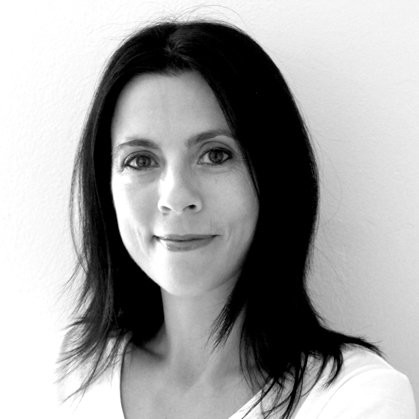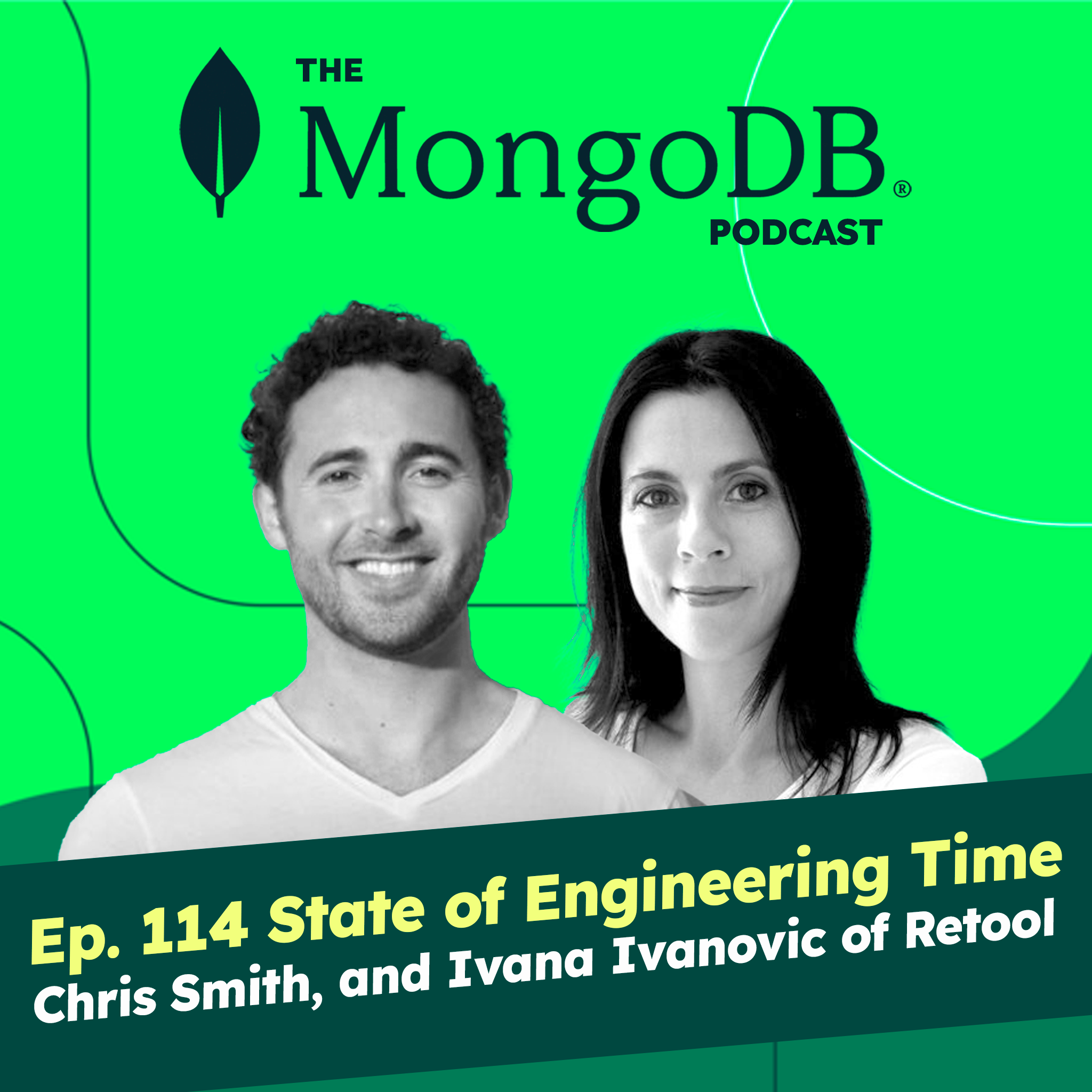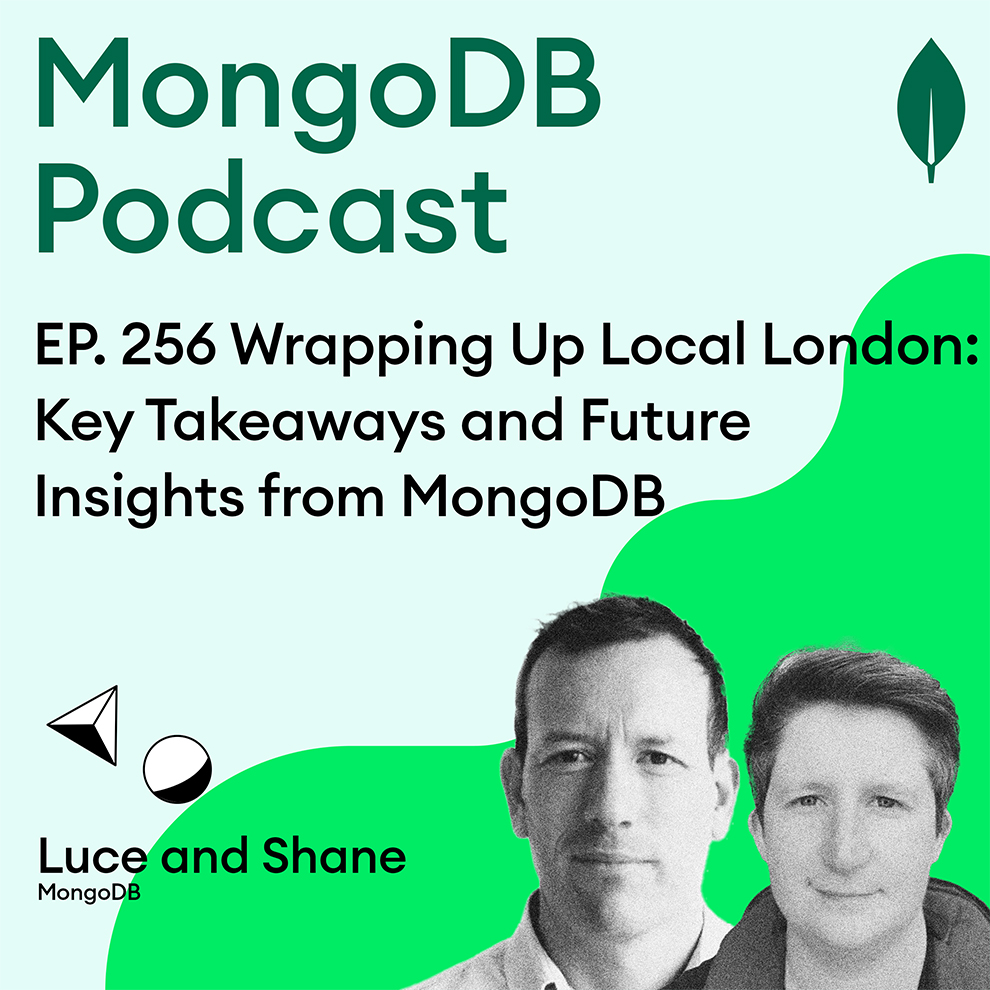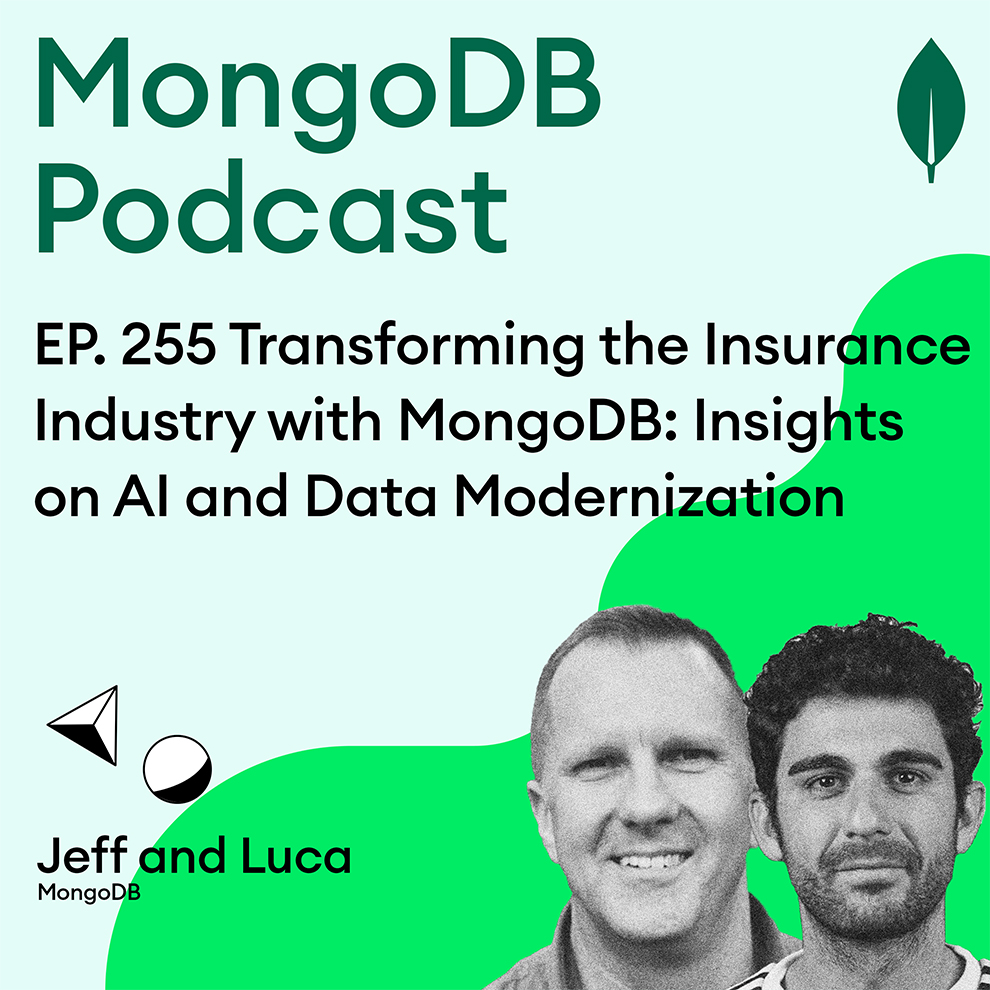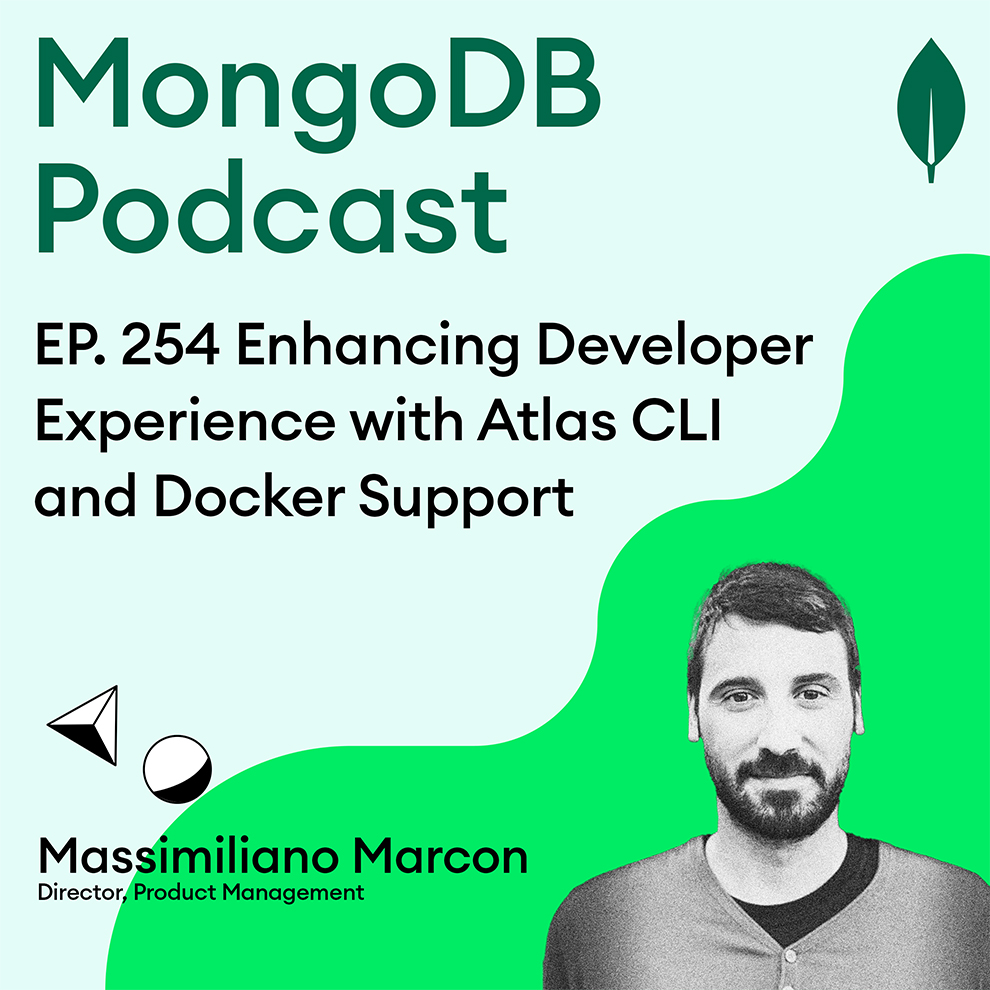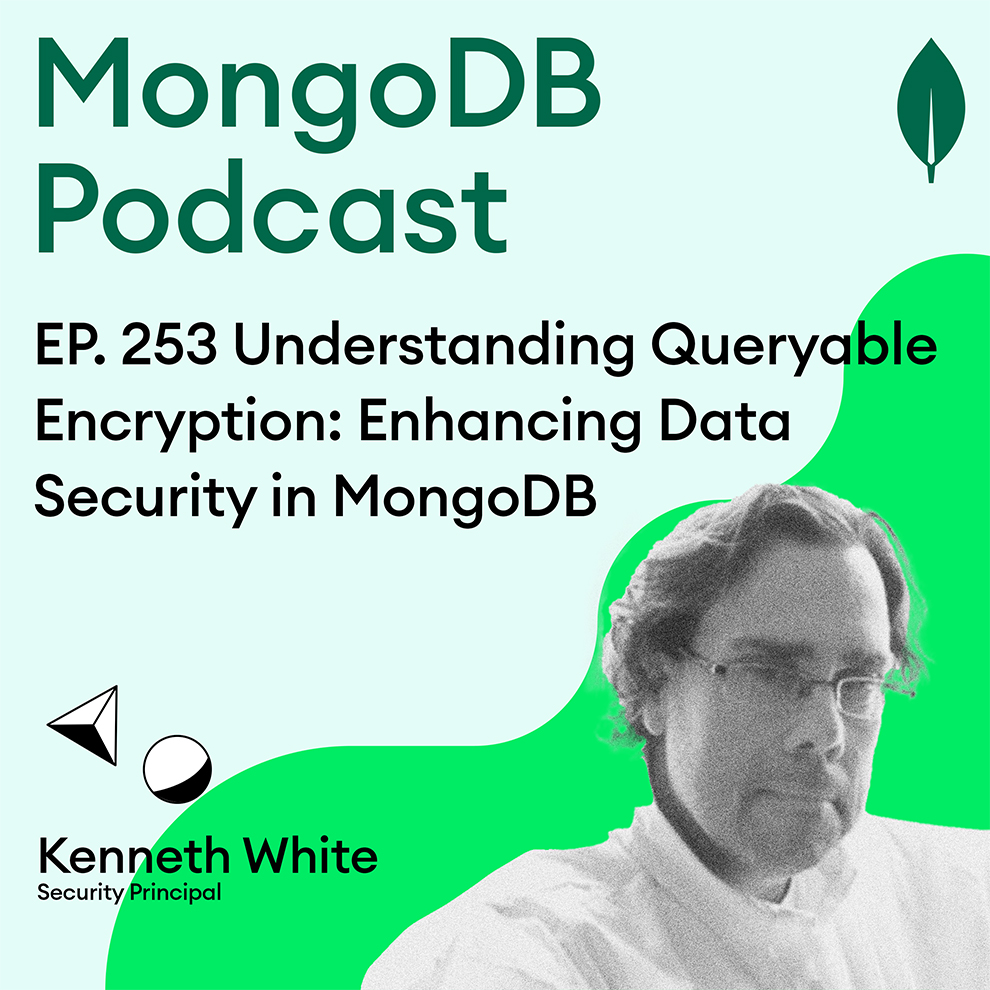Ep. 114 Retool - State of Engineering Time with Chris Smith & Ivana Ivanovic
- 0.5
- 1
- 1.25
- 1.5
- 1.75
- 2
Michael Lynn: Hey, welcome to the show. My name is Michael Lynn, Developer Advocate at MongoDB, and this is the MongoDB podcast. Today's show is all about time. Where are you spending your time? How much time do you spend writing code, working with data? How much time do you spend in meetings? Are you working remotely, or are you back in person? How productive are you with your time? Some interesting results in a report put together by Retool. Today on the show, Chris Smith, Developer Advocate at Retool, and Ivana Ivanovic, Head of Content. We're going to talk about some of those interesting results in this report put together by Retool. Retool, by the way, a pretty fascinating set of tools that enables you to create internal tools much faster, more efficiently. After all, it is all about productivity and time, right? Hey, before we get to the show, want to ask a favor. If you wouldn't mind, take a moment, head on over to Spotify or Apple Podcasts, wherever you're listening, leave a review. Let me know what you think of the show. Leave a comment, leave a rating. I'm going to use this to improve the show, hopefully make content that you'll like better. Thanks, folks. Stay tuned. Well, welcome to the show, Chris. It's great to have you on the podcast. Why don't you introduce yourself to the audience, let folks know who you are and what you do?
Chris Smith: My name is Chris Smith. I'm a Developer Advocate at Retool, really look at how do we create content and engage with developers the world over and really share all the cool things about Retool as a product.
Michael Lynn: Fantastic. And Ivana, welcome to the show.
Ivana Ivanovic: Hi, I'm Ivana. I'm Head of Content at Retool.
Michael Lynn: And today we're going to be talking about something near and dear to my heart, where engineers spend their time. So Ivana, if I could ask you to maybe give some background on the report that was written.
Ivana Ivanovic: Yeah, sure thing. Well, Retool is obviously natively interested in how engineers spend their time. The whole product was really built as a time- saving device and definitely is working as such. And then of course, these days everybody seems interested in the topic, various threads on Hacker News, Twitter, in the news. People are interested where ICs and managers spend their time. We saw some really fun threads and bizarre threads on Hacker News, like people working several jobs at the same time. There's obviously a lot of talk on the influence of the pandemic and health and wellbeing and engagement, not just the pandemic, but it's obviously a new era of remote work. So all of these questions, we are interested in, and the world is interested in. So we thought we'd ask engineers, and so we surveyed 600 of them. And the results of the survey are in this report that we produced called State of Engineering Time, inaugural, first in the world, first for Retool, 2022 inaudible time.
Michael Lynn: So for the folks listening that are also interested in where engineers are spending their time, we'll include links in the show notes, so make sure you check those out. Chris, so what was your involvement in the creation of the report?
Chris Smith: Ivana and I chatted a bunch along the way in terms of what questions we should ask, really thinking about how are developers using their time, how do we ask them questions that's really going to give us a nuanced understanding of where they're spending their time, and how much open source code they're using and what they're spending their time waiting on and things like that.
Michael Lynn: Yeah. Were there any surprises that came out of the study?
Chris Smith: I think there were a number of surprises. I was surprised to see just how much time engineers are spending in a flow state, or really how little time. I mean, the majority of people say it's less than 10 hours per week. That's just pretty wild to think of that entire week, 25% of the time is in that really deeply focused, creative, productive time.
Michael Lynn: Yeah. So I don't feel so bad now. I mean, I spend probably less than three hours per week these days. I mean, I do a lot of recording and things like that, and I'm not sure that falls into engineering time. So how many engineers or developers were polled as part of the survey?
Ivana Ivanovic: So 600, 300 individual contributors, so software engineers who are not managing other people basically, and then 300 senior and/ or managing engineers. And I should mention, none were Retool customers. This was a completely independent survey run through a research firm by the name of Wakefield.
Michael Lynn: Okay, so Wakefield. Now, why? Why would Retool be so interested in this type of data?
Ivana Ivanovic: It's a really good question. Well, I think for one thing, it's a really hot topic. Interestingly, we actually have a chat coming up with our VP of Engineering, Nora Jones from Jeli, and Uma from Render, who's the VP of Engineering there, formerly of StripeFame, and moderated by RedMonk. They as heads of engineering are deeply interested in where their teams spend their time. And this is not from some Orwellian perspective, or where does every minute go, but more that everybody is noticing kind of the consequences of administrative overlay to people's time. Even the small startups, as they grow, scheduling starts replace... And obviously with scheduling, replacing the good old tap on the shoulder, as inaudible on our team said, this just doesn't lend itself well to engineering work, right? I mean, the default setting on the Google calendar for a meeting is 30 minutes. This is not great for engineering, right? So that lack of deep flow time that people really need to build, and what engineers really like to do is build and not sit in meetings and build consensus and what have you. So heads of engineering team managers are interested in this. Obviously, ICs are interested in it. There is frustration, right? Over 30% of people, according to our survey, say that they'd like to spend less time on interviewing people. Recruiting is hard. Obviously, we need engineers to spend time there, but that's a lot of time, right? We really wanted to ask people what the top things are that they would like to spend less time on and more time on. And again, engineer productivity is at the heart of our efforts, right? Retool products was built to replace a bunch of repetitive tasks. So I hope that answers the question. It's kind of pulled from a team and product perspective. It's a very natural fit for us.
Michael Lynn: Yeah, and I appreciate the depth that you're going into. I'm curious about other surprises or interesting information that came out of the report. And I'm thinking about the report. From my own perspective, I'm thinking about the Great Resignation and the massive numbers of people that are actually leaving the engineering world. Are there any insights that you were able to glean from the survey around that?
Ivana Ivanovic: Yeah. I mean, a lot of the stuff speaks to it. I think this lack of deep state flow time, and I imagine some of the frustration around our top conclusion, one of our top conclusions, which is that wrangling machines is just really still hard. There's been a proliferation of all these cool tools that were supposed to make deploying apps less complicated, yet somehow it still takes a really long time to do large scale migrations of frameworks and libraries, of fixing documentation or getting context, merging conflicts. You name it, right? Lots of time on testing, which is a good thing, but still, there's a lot of waiting around, both on machines and then on people, too, waiting for code review, for example. That's one of the charts in our report, amount of time for code to fully ship to customer. All this stuff, it can be not so exciting for people in how they spend their days and how they want to see their work come to fruition. So I like to mention that to me, it's kind of like it used to be really prestigious to be a doctor, right? You're incredibly well paid, and you're helping people. And nowadays you have to wonder, doctors have, like, 15 minutes to talk to patients. They're underpaid. They're ruled by insurance companies. So is engineering still a desirable profession? And we certainly want it to be, but how fun and how productive is it really today, right?
Chris Smith: And I think another interesting thing that comes out of this is all of this data is really opportunities for the next wave of entrepreneurs to look at these processes and say," Oh, 40% of people are saying it's a significant issue every week to spend time waiting on large scale migrations of core frameworks," or," 40% of the time, people are saying it's a big issue waiting on people or sorting out merge conflicts." All of this is... it's an opportunity for the next set of people to come in and build better tooling, better processes. But I also know that it does contribute to people being less interested, or maybe less interested in working full time. And you have a lot of people resigning right now or going to part- time work. And I think these aspects of the day to day operations of doing engineering can weigh people down.
Michael Lynn: Now, Chris, how long have you been a developer/ developer advocate?
Chris Smith: Developer, I mean, in the most basic sense, I started coding in middle school on an old, basic computer, on my mom's computer, and writing little programs to... I was taking piano lessons at the time, and I figured out I could write a program to play Für Elise in the inaudible speaker on the motherboard. So maybe from the beginning, I've been a hacker. I'd say I've always been inclined towards hacking. And that led to working in engineering for about six years across sensor- based automation systems, and then worked at Segment and sort of cloud- based API integrations, data migrations, that kind of thing, and then spent the last year and a few months now at Retool, helping with onboarding developers onto the platform.
Michael Lynn: And as a developer advocate, how much time do you spend in the engineering space?
Chris Smith: Ah, really not a whole lot anymore. I mean, the most technical stuff I'm doing is building apps that really show the capabilities of the product, trying to emphasize how do we do different types of integrations, how can you write JavaScript within the app, what types of SQL queries can you write, and how can you structure them. But it's really pretty minimal compared to a everyday engineering job.
Michael Lynn: So as the report came together and you were reviewing some of the findings, how much did you agree with the results of the survey?
Chris Smith: I mean, most everything, really. So we have a section in it that's the top things that engineers wish they could spend less time on, and both senior and managing engineers and the individual contributors said that testing changes, writing tests, doing manual tests was the top answer. And that definitely resonates with me. You build the app or whatever the product or the feature is, and the last thing you want to do is go back and write some tests to make it really robust. You just want to ship it and wipe your hands of it and be done and feel like you kind of finished the job. And so that makes a lot of sense. The next one on the individual contributor section was about refactoring code. That's always annoying. There's been times, though, when I've found that to be really interesting, to think about how do you zoom out and just structure things in a more efficient way. But when you have other timelines and you really have to refactor code to meet performance requirements, that could be really cumbersome. So those are two that stand out. Interviewing is another one that comes up. I mean, regardless of on the engineering side, but interviewing can oftentimes feel like... you might be in the middle of a flow state, trying to get things done, and then have to jump off and meet someone new and go through the questions and evaluation and logging interview responses. And so about 33% of people said that that was something they wish they could spend less time on, so resonate with that as well.
Michael Lynn: I absolutely agree with that. I think the troublesome thing about that is that interviewing someone and tallying the scores and working someone through the hiring process is so dramatically different than the flow state associated with writing some code.
Chris Smith: Yeah, totally. And that was an interesting answer that came out on this one on the senior and managing engineers side that was 26% of senior and managing engineers said they wish they could spend less time having fun with coworkers. So that's interesting. I wonder if that's because there's some sense of obligation for... you got a lot of other stuff to do, but you need to be team- building or something.
Michael Lynn: Yeah. Ivana, the way that the report is structured is interesting. Some of the sections are assertions, okay? So one of them is... I guess, the section is we're all running other people's code. And then in that section, we've got things like investing in and using Opensource. We get some insights around that. It's an interesting way to structure a report, I think. I like the way that the separate sections are assertions, and I can kind of gauge my interest as to whether or not I agree with those assertions. How did you come up with that?
Ivana Ivanovic: That's a really great question. It was definitely collective work, including the person who wrote the report, who I haven't asked his permission to publicize his name here, so I'll refrain for the moment. But definitely, it was a very, very strong team effort. It also included a couple of engineers from our team because we didn't want to do this as a kind of a inaudible effort. So when you read reports like this, if you're just bombarded with stats, I think that's not very interesting or helpful, for that matter. Mind you, we asked 20 questions. We got a ton of data. So it took some sifting through to both understand what would be interesting to people and put it in a narrative of some sorts. To your point, people may or may not agree. But I think the assertions we made were those that we really felt very strongly that the data is telling. So we didn't just opinionate, or opine, rather. We really tried to just put figures in words, basically.
Michael Lynn: So it seems quite simple. If you're only asking 20 questions, how could there be so many insights? And I guess it has to do with the Y axis, right, the difference of the population. Is that it?
Ivana Ivanovic: Difference in population and also multiple answer option-
Michael Lynn: Multiple choice.
Ivana Ivanovic: I'm not being clear, I'm sorry. Multiple choice questions, correct. Yeah, sometimes it's a lot of choices, so kind of combining that data and collating it and then representing it visually is not a trivial task.
Michael Lynn: Can I ask how long it took to produce the report?
Ivana Ivanovic: It's a great question. So you prepare your questions, then you go to field for about two to three weeks. Then it takes a couple of weeks for whoever is doing this to actually present you with the data. Then you sit down and think hard about the data. Then you write the report, which takes about a week to two. Then you inevitably rewrite it a couple of times, so probably about a month to really design the charts and write it. And that, we thought would take less time, but it always takes longer. And then there's the web part, which all depends on how efficient your teams are. So we managed to do this pretty quickly, I think, in about a week to put on web once it was designed.
Michael Lynn: Yeah. One of the interesting assertions is around remote work life, so work productivity compared to before COVID- 19. Now, to me, it looks like a fairly interesting bell distribution between significantly less productive on one side and significantly more productive on the other. But I have to question, I mean, I think for me personally, I'm far more productive post- COVID remote simply because I'm at my computer more. I'm not traveling as much. And my company has really done an amazing job of giving me tools that can help me be more productive, leveraging communication tools and work from home tools and support tools. And I find myself significantly more productive in the post- COVID world. I'm curious, Chris, what's your experience in that domain?
Chris Smith: I thought that was an interesting- looking chart as well with the sort of normal distribution in terms of... I thought it was really interesting just to see the numbers. So yeah, a lot of people are saying they're more productive, and a lot of people are saying they're less productive. And so what are the dynamics that are at play there? And there was another question we asked that kind of led towards what their most productive work model is, where you have fully remote, partly remote, and fully in office. And about 36% of individual contributors said fully in office, about 21% said fully remote, 44% said partly remote. And I think that really resonates with me, is partly remote is a majority. And that's also what I would prefer. It's like I'd prefer to have some time when I can be kind of separate from distractions. I can set up in my own space. I can just have some deeper flow time, but also still have the opportunity to have some social connection and play some games around the office or go out for lunch with colleagues, that kind of thing. And I think that's probably also why some people are less productive in a remote sense, in a fully remote sense, like, say, during COVID, because I think that lack of social connection can sometimes take away from people's productivity. So I'd be really curious to go in and do some qualitative analysis on who's answering significantly less productive, somewhat less, and see what the reasons are.
Ivana Ivanovic: I have to say this, as a mom of a three- year- old, I can tell you, office. There were many, many days when the office seemed so attractive. And I think that's the case for many parents.
Michael Lynn: That makes sense. Yeah. We're talking about the 2022 State of Engineering Time, a report produced, I guess, produced by Retool, right?
Ivana Ivanovic: Yes.
Michael Lynn: Produced by Retool. Ivana, where can people get a hold of this report?
Ivana Ivanovic: So it's online. It's retool. com/ reports/ state- of- engineering- time- 2022, with dashes in between those words. And I know you paste the link in your podcast notes.
Michael Lynn: Absolutely. Make sure you check the show notes for details and links. Are there any other interesting elements of the report that you want to pull out or call out before we begin to wrap?
Ivana Ivanovic: I think the reliance on Opensource is really an interesting tidbit here. I think nobody would be surprised that Opensource is so popular, but just as we say in the report, the degree to which it's really essential to every company is astounding. And I think we all have a lot of thinking to do on how to support this model being healthy and helpful to people and sustainable, right?
Michael Lynn: That is an interesting stat. Well, Ivana, Chris, this has been a great chat. I want to thank you for taking time out. Once again, we're talking about the State of Engineering Time. It's a report produced by Retool. I'll include links in the show notes. Chris, anything else before we wrap?
Chris Smith: No. Thanks for checking it out. And yeah, be sure and check out Retool as well. I mean, we make a tool that saves engineers a ton of time, and I love it, and that's why I work with Retool, and so would highly recommend anybody that's trying to save time to check out Retool.
Michael Lynn: Absolutely. We'll also include links to Retool. Ivana, anything else before we wrap?
Ivana Ivanovic: Yeah, we're very open to feedback. You'll see an opportunity to tweet to us in the report. Please do. I know there are controversial findings. We want to hear from you.
Michael Lynn: Thanks once again. Enjoy the rest of your day.
Chris Smith: Thanks, Mike.
Michael Lynn: Special hanks to Chris and Ivana for joining me today. Make sure you visit Retool. com. Check out their tools, check out the report. You can find links in the show notes today. Thanks, everybody.
DESCRIPTION
Chris Smith and Ivana Ivanovic of Retool drop by The MongoDB Podcast to discuss the State of Engineering Time report. How are developers spending their time, what tools are aiding them to be more productive and efficient, and why does it matter? All this and more in their conversation with host and MongoDB Principal Developer Advocate, Mike Lynn.
Highlights of the conversation include:
- [1:51] Ivana talks about the State of Engineering Time report
- [3:09] Chris Smith's involvement in the creation of the report
- [4:42] Understanding the consequences of administrative overlay to people's time
- [6:40] Surprise learnings from the report
- [9:20] Chris' experience as a developer advocate and where he spends his time in engineering
- [10:44] Does Chris agree with the results of the survey?
- [13:00] The report structure and its assertions
- [14:59] How long it took to produce the report
- [15:40] Assertions around remote work life and productivity compared to pre-COVID
Today's Host
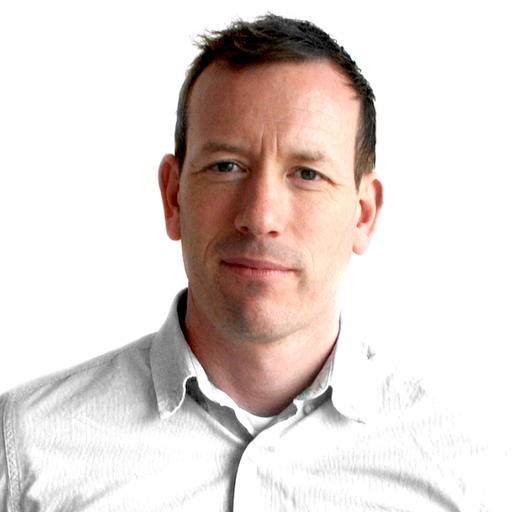
Shane McAllister
Today's Guests
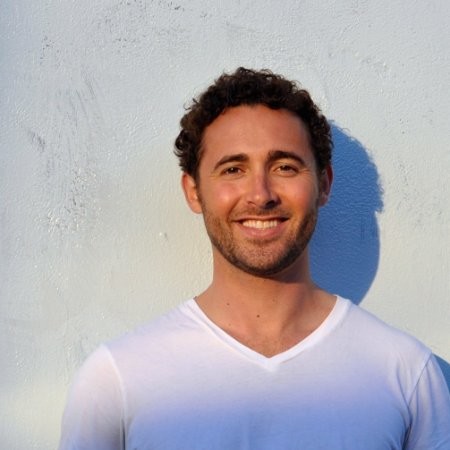
Chris Smith
